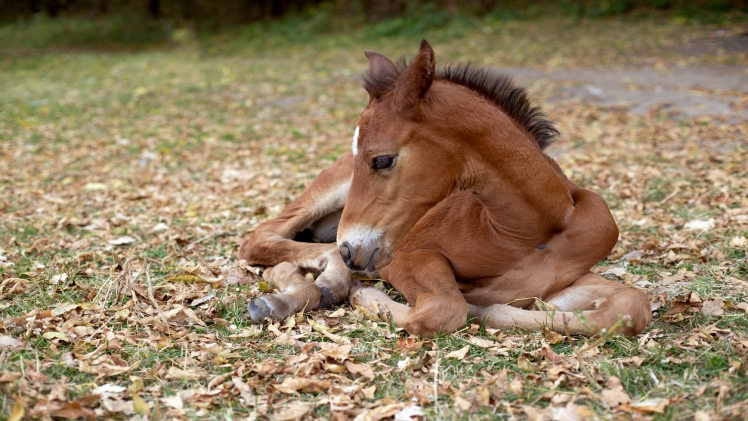Proper nutrition is essential for maintaining the health and performance of horses. Like other living creatures, horses require a balanced diet to meet their nutritional needs. However, despite the best efforts of horse owners and caretakers, nutritional deficiencies can still occur. Understanding these deficiencies and how to address them is crucial for ensuring the well-being of your equine companions.
Importance of Balanced Nutrition for Horses
Before delving into specific deficiencies, it’s important to grasp the significance of balanced nutrition for horses. Horses are herbivores with a digestive system optimized for processing fibrous plant material. Their diet should primarily consist of high-quality forage such as hay and pasture grasses. In addition to forage, horses require essential nutrients, including protein, carbohydrates, fats, vitamins, and minerals, to maintain bodily functions, support growth, and fuel performance.
Common Nutritional Deficiencies in Horses
1. Protein Deficiency: Protein is crucial for muscle development, tissue repair, and overall health. Protein deficiency can lead to poor muscle tone, slow growth in young horses, and a weakened immune system. Horses lacking sufficient protein in their diet may exhibit dull coats, decreased performance, and reduced stamina.
-
- Addressing Protein Deficiency: Ensure horses have access to quality protein sources such as alfalfa hay, clover, and soybean meal. Balancing the overall diet with adequate protein content based on the horse’s age, activity level, and health status is key.
2. Vitamin and Mineral Deficiencies: Horses require a spectrum of vitamins and minerals to support various physiological functions. Common deficiencies include:
· Vitamin E: Essential for muscle function and immune support.
· Vitamin A: Important for vision, skin health, and immune function.
· Calcium and Phosphorus: Critical for bone development and strength.
· Selenium: An antioxidant mineral that supports muscle function and immunity.
a. Addressing Vitamin and Mineral Deficiencies: Offer a balanced horse feed with essential vitamins and minerals. Consult with a veterinarian or equine nutritionist to assess the need for supplementation based on the horse’s diet and individual requirements.
3. Omega-3 Fatty Acid Deficiency: Omega-3 fatty acids play a vital role in maintaining skin health, promoting a shiny coat, and supporting immune function. A deficiency in omega-3s can result in dry, flaky skin, brittle hooves, and decreased immune response.
-
- Addressing Omega-3 Fatty Acid Deficiency: Incorporate sources of omega-3 fatty acids into the horse’s diet, such as flaxseed or chia seeds. Commercial horse feeds fortified with omega-3s are also available and can be included in the feeding regimen.
4. Electrolyte Imbalance: Sweating during exercise causes horses to lose electrolytes such as sodium, potassium, and chloride. Electrolyte imbalances can lead to dehydration, muscle cramping, and reduced performance.
-
- Addressing Electrolyte Imbalance: Provide electrolyte supplements, especially during hot weather or periods of intense exercise, to replenish lost electrolytes and maintain hydration.
5. Iron and Copper Imbalance: An excess of iron relative to copper in the diet can interfere with copper absorption, leading to a deficiency. Copper is essential for coat color, hoof health, and iron metabolism.
-
- Addressing Iron and Copper Imbalance: Balance the horse’s diet by minimizing iron-rich feeds and providing copper supplements if necessary.
Addressing Nutritional Deficiencies through Horse Feed
Choosing the right horse feed is crucial for preventing and correcting nutritional deficiencies. When selecting horse feed, consider the following factors:
· Forage Quality: Good-quality hay or pasture should form the foundation of a horse’s diet. Analyze the nutrient content of the forage to determine additional supplementation needs.
· Complete Feeds: Complete feeds are formulated to provide all essential nutrients in one package. They are convenient for horses with specific dietary needs or those requiring additional supplementation.
· Supplements: Targeted supplements can address specific deficiencies identified through forage analysis or veterinary consultation. Choose supplements from reputable brands to ensure quality and efficacy.
· Consultation with Experts: Work with a veterinarian or equine nutritionist to develop a tailored feeding plan based on the horse’s age, activity level, health status, and any identified deficiencies.
Ensuring Proper Hydration
In addition to addressing nutritional deficiencies, ensuring proper hydration is vital for overall equine health. Horses require access to clean, fresh water at all times. Dehydration can exacerbate existing health issues and impact performance. During hot weather or strenuous activity, encourage horses to drink frequently by providing multiple water sources and adding electrolytes to their water if necessary.
Monitoring and Adjusting the Feeding Regimen
Regularly monitoring a horse’s condition, including body weight, coat quality, and overall demeanor, can help identify potential nutritional deficiencies. The feeding regimen should be adjusted gradually and in consultation with equine health professionals to avoid digestive upsets or imbalances.
Conclusion
Preventing and addressing nutritional deficiencies in horses is essential for promoting optimal health, performance, and longevity. By understanding the specific nutrient requirements of horses and providing a balanced diet that meets these needs, horse owners can ensure their equine partners thrive. Regular monitoring, consultation with experts, and the use of high-quality horse feed and supplements are key components of effective equine nutrition management. Prioritize your horse’s nutrition to set a solid foundation for their overall well-being and success. Remember, a well-fed and properly cared-for horse is a happy and healthy companion.

